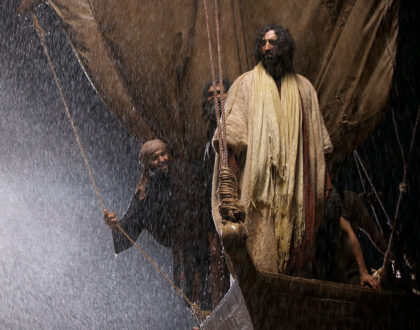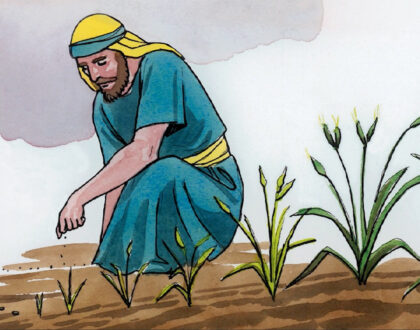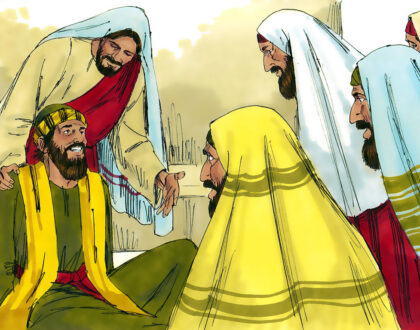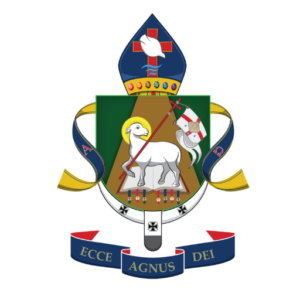Called to a Life of Thanksgiving

First Sunday of Ordinary Time
Archbishop Loren Thomas Hines
June 23, 2019
Readings: 2 Samuel 11:26-12:10-15, Psalm 32
Galatians 2:11-21
Luke 7:36-50
The season of Easter shows us the fulfillment of God’s plan for man which is the restoration of man to the family of God, to bring us back to a relationship with Him. That relationship is our source of life. The knowledge of what Christ has done for us should fill our hearts with praise and thanksgiving to God and a desire to express this praise in everything we do.
When we come to Ordinary Time, the purpose of the structure of the lessons is to make us understand all that God has given us and our place with God. We are one with God and a part of the Trinity. Shouldn’t we be expressing thanks for this? We’ve been given gifts; we should use them. We will be judged by the work of our hands. This is what Ordinary Time is all about. We show appreciation for what God has done for us. He has given us peace, wisdom and strength, a strength that comes from our relationship with Him, and that strength empowers us to be a witness to His greatness. We can face the darkest hour and not be overcome. Christ is in us, so how can we fail? “As a man thinketh in his heart, so is he.” We should believe that we are God’s children, that we are holy and righteous, that He is always with us. For more than half of the year, we learned what Christ has done for us. In Ordinary Time, it’s our turn to respond to what He has given us.
The Gospel and the first reading today are stories of restoration and thanksgiving. The first reading is about David, guilty of the lowest of sins – adultery, crime and cover up – and yet it was through his lineage that Christ came. This is restoration, from the lowest to the greatest. He set the structure for worship with songs in his heart recorded in most of the Psalms. Yes, he suffered the consequences of his sin, but he didn’t allow it to control his life. God’s forgiveness shaped how he lived his life thereafter.
The Gospel from Luke gives us a similar story of beauty, thanksgiving and praise. In those times, the wealthy built their houses around a courtyard turned into a garden where they would eat their meals. This was the setting for the Gospel. Simon the Pharisee wasn’t a believer. We don’t know why he invited Jesus in his home to share a meal. It was tradition at that time that when a man of high honor came into a house, the host would welcome him with a kiss, have his feet washed, and incense would be brought in or he would be given a drop of oil on his head. Jesus didn’t receive any of these when He entered the house of Simon – no kiss of peace, no washing of His feet, no incense. People at that time reclined at the table as they ate their meal, with their feet away from the table.
A strange thing happened. The woman came into the house of Simon, an important person in the community (he probably had guards), yet she managed to get in. It appeared that she knew her way around. Maybe she was there before. This woman was a prostitute who had an encounter with Jesus prior to this and she had been set free. She came behind Jesus and washed His feet with her tears, tears of thanksgiving for what God has done for her. She wiped His feet with her hair. There is something significant here.
At that time, a woman’s hair was like a piece of art, always done on top of the head, never hanging down. This shows the woman’s humility; she didn’t care what she looked like, what people thought of her. The whole time that she was wiping Jesus’ feet, she was kissing them, showing a total respect and gratitude to the Lord. As this was happening, Simon was thinking in his heart, “If this man were a prophet He would know who and what sort of person this woman is who is touching Him, that she is a sinner”. Simon didn’t believe that Jesus was a prophet; didn’t have respect for Him at all. At this point, Jesus tells the story of a moneylender who lent money to two people. The moneylender forgave both debts. Jesus then asks Simon, “So which of them will love him more?” Simon’s reply: “I suppose the one whom he forgave more”. Jesus told Simon that he judged correctly and pointed to the woman. “I entered this house; you gave Me no water for my feet, but she has wet My feet with her tears and wiped them with her hair. You gave Me no kiss, but she has not ceased to kiss My feet. You did not anoint My head with oil but she anointed My feet with perfume. For this reason her sins which are many have been forgiven, for she loved much….” This is a powerful message of thanksgiving. The difference between Simon and the woman is that Simon is not a believer and has not received forgiveness, while the woman who used to be a prostitute was restored to the fullness of life. And here she expressed her thanksgiving profusely. Much like David; he dedicated his whole life to bring worship to God when he received forgiveness for his grievous sins. We have a third example in Saul. He persecuted Christians but had a complete change of heart when he heard from God. He dedicated the rest of his life in service to God. Those who have committed the greatest sins are those who would do most for the Kingdom of God.
We call ourselves Christians, but it isn’t who we are but what we do that counts. So as we begin Ordinary Time, the question we should ask ourselves is “what are we doing to express our thanksgiving? What’s our commitment to the work of God? Is it coming out of our hearts or do we do things only habitually and out of a sense of obligation?” These are questions I present to you today: What has God done for you and what have you given back in thanksgiving? Is this gratitude made known through your lives? How intense is your commitment? Do you allow anything to hold you back or do you make certain that God get the glory for everything? I challenge you to examine your life. Don’t let time pass without showing thankfulness for what God has done for you.
Recent Sermons

Jesus, Calmer Of Storms
June 23, 2024

Harvest Time Stemming From The Smallest Seed
June 17, 2024

Not Bound By Limitations To Minister
June 10, 2024

